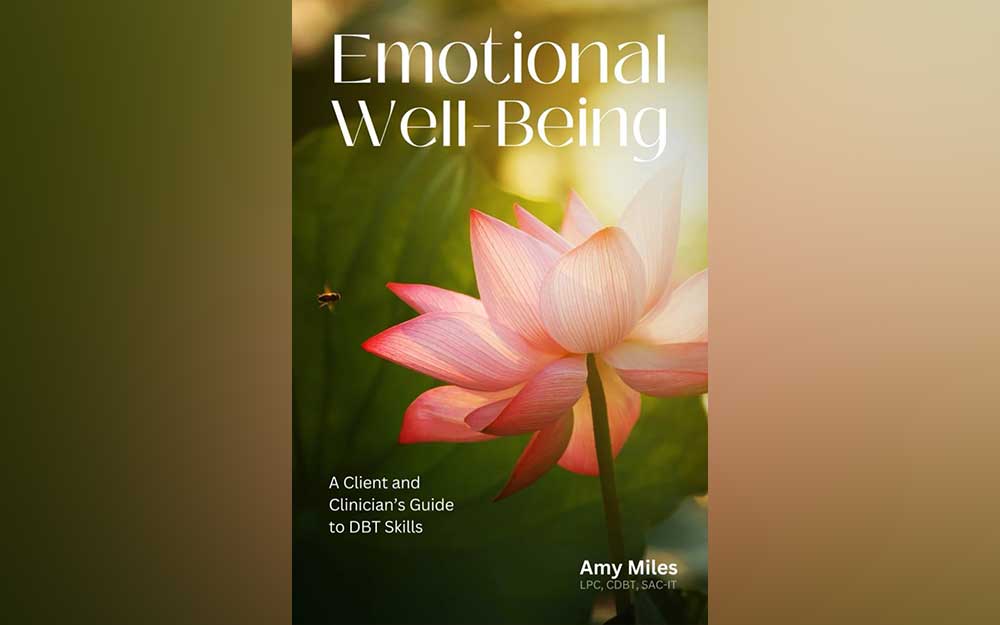
‘Emotional Well-being’: With new book, Rogers therapist aims for connection
06/05/24 12:00:pm

In “Emotional Well-Being: A Client and Clinician’s Guide to DBT Skills”, the Sheboygan therapist provides an in-depth look at how she uses and teaches DBT, or dialectical behavioral therapy, within her practice. Amy describes DBT as a way to teach individuals tools for understanding and managing their emotions, broadly valuable to both clinicians and individuals.
“I write specifically about what I’ve done with DBT that works for my clients and me, and if a reader finds something that’s beneficial for them, or if clinicians find it can supplement their practice, then that’s fantastic,” Amy says. “I want to help as many people as I can.”
Publishing a book was on Amy’s bucket list, though she says she hadn’t settled on a genre until inspiration struck when working in traditional outpatient therapy prior to her work at Rogers.
“A bunch of my clients would come in and say, ‘I want skills for this, I want worksheets for that,’ but they would have to buy five or six different books,” Amy says. “I just started jotting things down as study guides for my clients, and then I ended up thinking, I could make a book out of this.”
She credits insights from both her clients and colleagues for making her book a reality. Writing and publishing was a journey that took several years, winding through milestones in Amy’s life including her marriage, a house purchase, having two children, and a pandemic.
“It’s a little bit more personalized than some other DBT books out there,” Amy says, adding that she wrote about her own experiences, including the death of her mother. “Because I think that’s what humanizes me. It’s important readers know these skills are for anyone.”

“We’re doing validation incorrectly, and it’s detrimental to our connection,” Amy says. “Our intention is to validate, but often we actually invalidate, and we push people farther away.”
She says one of the book’s main aims is to help people match their words and actions with their intentions.
“If I could wave a magic wand, it would be to have everyone learn how to use validation appropriately,” Amy says. “I’m trying to get people to learn this language of validation and become fluent in it.”
She gives the example of someone experiencing hallucinations or delusions.
“Validation is saying, ‘I can hear you when you say you are going through this experience, but at the same time, that isn’t my reality. Can you tell me more about it? Let’s talk about it so I can understand what’s going on with you.’”
Amy says validation can make a difference beyond treatment settings and into everyday life.
“We’re way too divided now, and I think validation will help that and help us be more comfortable with our emotions that we often stuff down until they explode,” Amy says. “It’s amazing when you feel validated. It’s like that first time you fall in love with someone and you look at your watch and you’re like, ‘Wow, four hours went past.’ That’s what it feels like when someone really, accurately validates you.”
You can find Amy’s book “Emotional Well-Being” here on Amazon.





